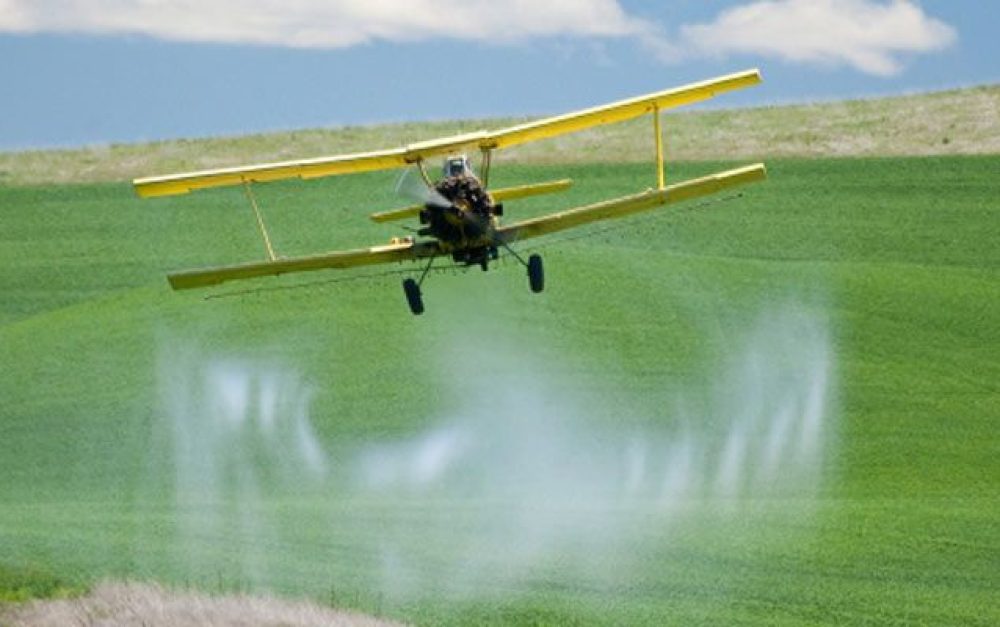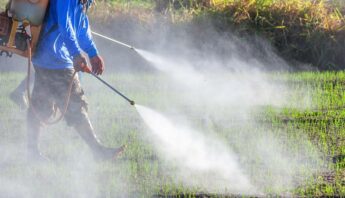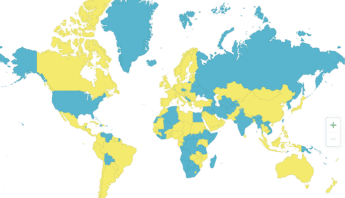At global chemicals meeting, pressure mounts to support agroecology as alternative to chemical-intensive farming
FOR IMMEDIATE RELEASE: October 1, 2015
Press Contact: Linda Wells, linda@panna.org, (563) 940-1242
More than 100 health experts around the world are calling on government leaders to halt production and use of highly hazardous pesticides “to protect our children and the succeeding generations from an impending toxic tragedy.” An open letter with this urgent message was delivered this week to government delegates meeting in Geneva, Switzerland, for the United Nations’ fourth International Conference on Chemicals Management (ICCM4).
Nearly 120 concerned professors, toxicologists, epidemiologists and physicians from 24 countries signed the letter, citing the World Health Organization’s statistics on the serious, sometimes fatal, effects of pesticide exposure. Noting the health impacts on children, the signers said that “there is growing evidence that the health of future generations may be severely jeopardized” by highly hazardous pesticides, also known as HHPs.
“HHPs are a danger to both agricultural workers and people living near areas of application,” said Javier Souza, current Chair of Pesticide Action Network (PAN) International. “Some HHPs have the potential to move through water, air, soil and end up in food thereby affecting people living outside agricultural areas. There are many effective agroecological alternatives to replace these chemicals. We need to ban HHPs immediately.”
HHPs, according to WHO, are extremely difficult to use without significant risk to people or to the environment; exposure can damage a person’s nervous, reproductive and developmental systems or result in cancer. Even so, HHPs such as glyphosate (an active ingredient in Monsanto’s popular weed killer RoundUp), DDT and paraquat are still widely used around the world. Those commonly used in the U.S. include the herbicides atrazine, glyphosate and 2,4-D and the neurotoxic insecticide chlorpyrifos.
Pressure is mounting to provide more support for alternatives to pesticide-intensive farming methods. Nearly 400 organizations from more than 100 countries have signed PAN’s call to eliminate HHPs.
Oakland-based PAN North America advocates replacing the use of HHPs with non-chemical, ecologically sound alternatives. “It is possible to grow corn, soybeans, small grains and all manner of fruit and vegetable crops in biologically based, diversified farming systems,” wrote PAN senior scientist Marcia Ishii-Eiteman, PhD, in a recent blog. “Agroecological practices such as ecological weed and insect pest management, combined with smart soil and water conservation practices are being employed by innovative farmers all over the U.S.”
Dr. Ishii-Eiteman is a contributing author to Replacing Chemicals with Biology: Phasing out highly hazardous pesticides with agroecology, a PAN International book which was released Tuesday, September 29, at ICCM4. The book features examples of successful large-scale farming done using ecological principles, and presents international policy recommendations. Delegates are also being urged to take action on a request from African delegates, spearheaded by PAN International and international citizen network IPEN, to formally establish a “Global Alliance to Phase Out HHPs.”
PAN also released an updated list of global pesticide bans at the Geneva meeting, titled the Consolidated List of Banned Pesticides. Among the 98 countries in which PAN could collect data, one or more have banned a total of 316 pesticide active ingredients.
“It is heartening to note this progress on HHP bans,” says Dr. Medha Chandra, an organizer for PAN North America, “but much more needs to be done to protect human health and the environment around the globe from the harmful impacts of pesticides.”
“We have everything that we need right now to step away from chemical-intensive farming methods,” adds Judy Hatcher, Executive Director of PAN North America. “All we lack at this point is the political will for change. I hope that the ICCM4 delegates — including representatives from the U.S. government — will take bold action this week to turn toward more equitable and sustainable practices.”
- The PAN International letter signed by toxicologists and health professionals can be accessed here
- The PAN International book titled Replacing Chemicals with Biology: Phasing out highly hazardous pesticides with agroecology is available here
- The PAN International Consolidated List of Bans is available here
Available for interviews:
Judy Hatcher, Executive Director, PAN North America, judy@panna.org
Marcia Ishii-Eiteman, Senior Scientist, PAN North America, mie@panna.org
Medha Chandra, Organizer, PAN North America, mchandra@panna.org
Pesticide Action Network (PAN) North America works to create a just, thriving food system. One of five regional centers worldwide, PAN links local and international consumer, labor, health, environment and agriculture groups into an international citizens’ action network. Working together, PAN challenges the global proliferation of dangerous pesticides and defends basic rights to health and environmental quality.







